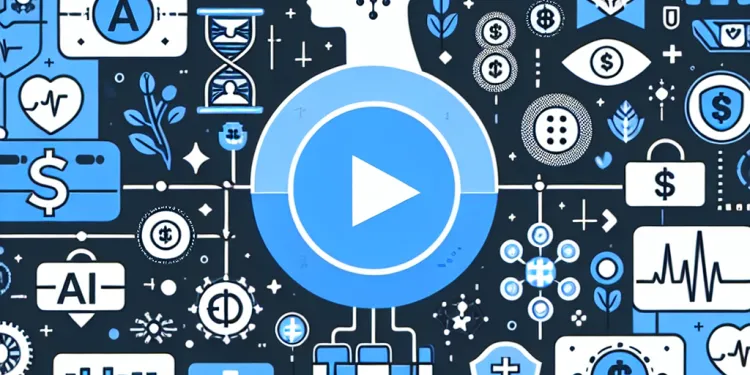
Find Help
More Items From Ergsy search
-
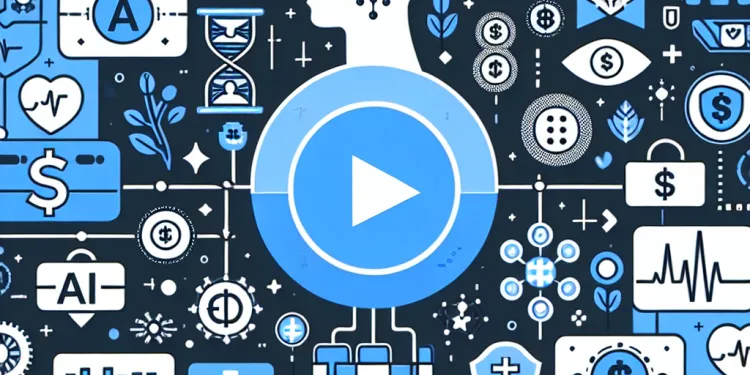
What areas of the NHS are using AI in 2024?
Relevance: 100%
-
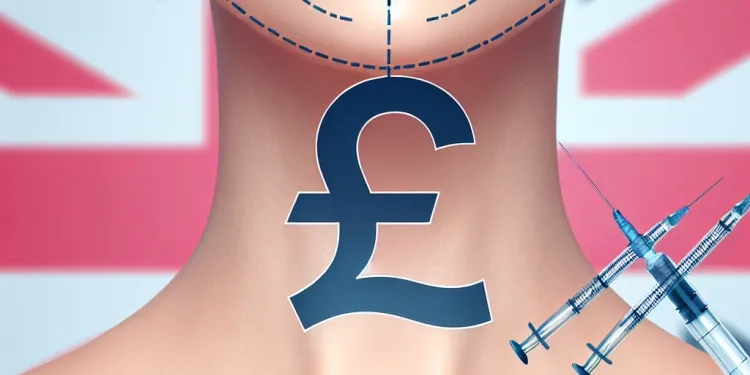
What areas can be treated with Botox?
Relevance: 39%
-

What are the entry requirements for the rest of the Schengen Area?
Relevance: 38%
-

Is hay fever more common in urban areas?
Relevance: 38%
-

What should I do if I overstay my 90-day limit in the Schengen Area?
Relevance: 35%
-

Which UK areas are most affected by sewage pollution?
Relevance: 35%
-

Has the screw worm been eradicated in some areas?
Relevance: 35%
-
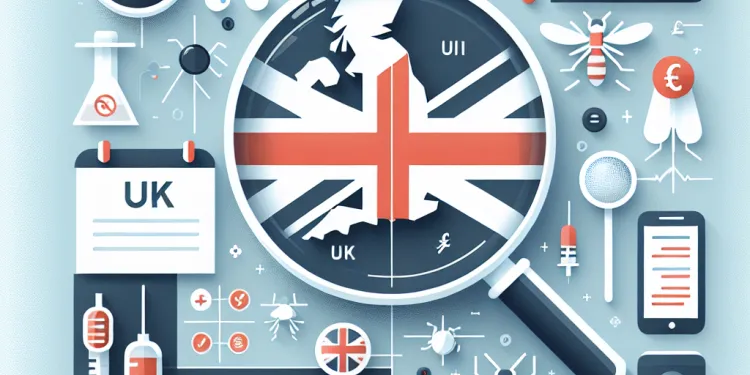
Where can I find the latest updates on Zika virus risk areas?
Relevance: 34%
-

Strategies for Reducing Loneliness and Social Isolation in Urban Areas
Relevance: 33%
-

Study Reveals Disparities in Welfare Support Between Urban and Rural Areas
Relevance: 33%
-

Can gonorrhoea infect areas other than the genital organs?
Relevance: 33%
-

Can I install my own camera to monitor the area in question?
Relevance: 32%
-

Rise in Childhood Asthma Linked to Air Pollution in Urban Areas
Relevance: 32%
-

How can I check if there is a hosepipe ban in my area?
Relevance: 32%
-

What are some common pollutants that affect asthma sufferers in urban areas?
Relevance: 31%
-

UK Study Links Poor Air Quality to Increased Asthma Cases in Urban Areas
Relevance: 31%
-
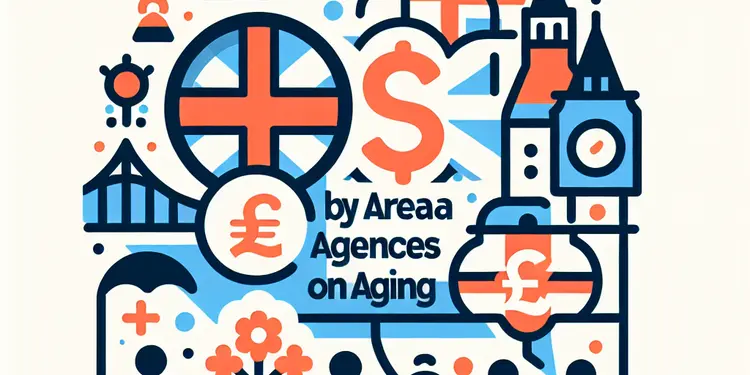
What role do Area Agencies on Aging play in supporting seniors?
Relevance: 31%
-

How do I check current air quality levels in my local area?
Relevance: 30%
-

Where can I find information on air pollution and its effect on Asthma for my local area?
Relevance: 30%
-
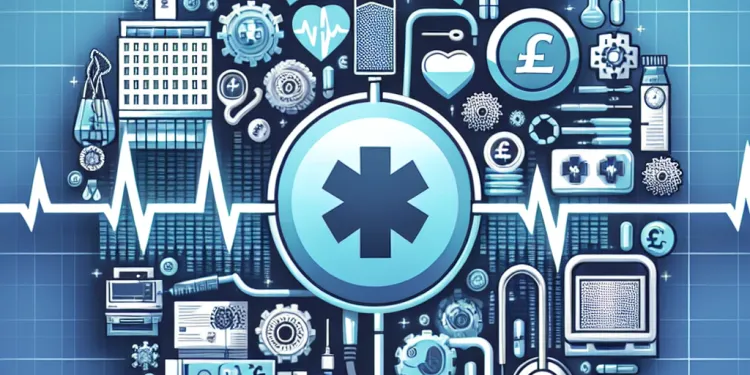
Can I specialize in a certain area of nursing with the NHS?
Relevance: 30%
-

How to apply wet wrap bandaging to the head and face area.
Relevance: 30%
-

Where can I find research studies on air pollution and asthma in my area?
Relevance: 30%
-

What is the 90/180-day rule for Schengen Area travel?
Relevance: 29%
-

How can I find information on waiting times for an operation in my area?
Relevance: 26%
-

Can UK citizens travel to Spain without a visa?
Relevance: 25%
-

How can I find out if there are any air quality alerts in my area?
Relevance: 25%
-

Do UK citizens need a visa to travel to France?
Relevance: 25%
-

What travel documents do I need to enter France?
Relevance: 24%
-

What if I haven’t received my Winter Fuel Payment?
Relevance: 19%
-

Is there a deadline to claim the Winter Fuel Payment?
Relevance: 17%
-

How can I calculate my new earnings based on the National Living Wage increase?
Relevance: 14%
-
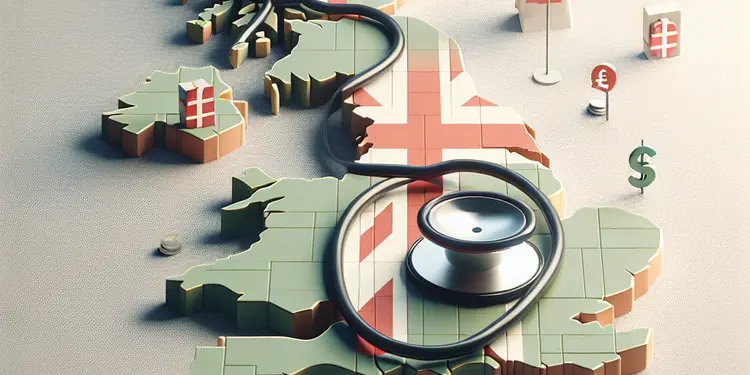
Calls for Urgent Action on GP Shortages Across Rural England
Relevance: 13%
-

Where is Lyme disease most commonly found?
Relevance: 13%
-

Are school meals free for all students in the UK?
Relevance: 12%
-

Can geographical location affect electricity prices in the UK?
Relevance: 12%
-
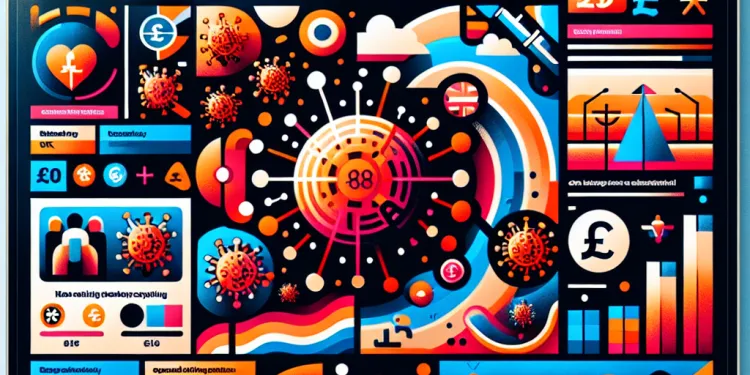
Where do Chikungunya outbreaks typically occur?
Relevance: 12%
-

When is the deadline to file taxes online?
Relevance: 12%
-

How can UK residents protect themselves from Zika virus when traveling?
Relevance: 12%
-

Is the UK government providing guidance on Zika virus for travelers?
Relevance: 12%
-
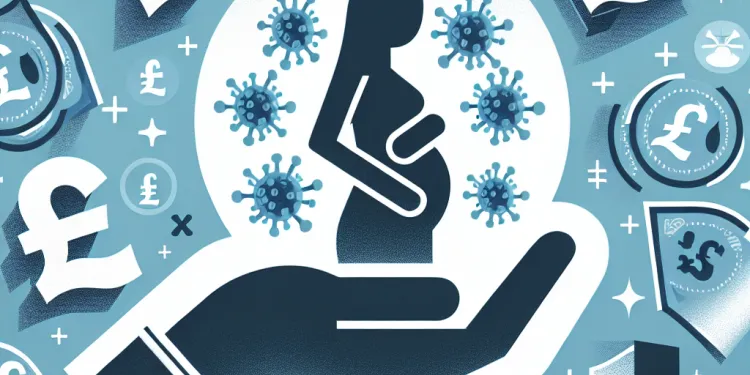
What precautions should pregnant women in the UK take regarding Zika virus?
Relevance: 11%
How the NHS is Utilizing AI in 2024
AI in Diagnostic Imaging
In 2024, the NHS has increasingly incorporated artificial intelligence in diagnostic imaging. AI systems are employed to assist radiologists by analyzing medical images such as X-rays, MRIs, and CT scans. These systems can detect anomalies with remarkable accuracy, allowing for earlier diagnosis of conditions such as cancer, fractures, or neurological disorders. AI algorithms help prioritize cases that need urgent attention, improving workflow efficiency and enabling timely patient management.
AI in Predictive Analytics
The NHS is also harnessing AI for predictive analytics to bolster patient care and operational efficiency. Predictive models powered by AI analyze vast amounts of patient data to forecast disease outbreaks, admissions, and resource allocation needs. By anticipating patient surges, hospitals can optimize staffing and resource distribution, reducing bottlenecks and ensuring patients receive timely care. Additionally, AI helps identify at-risk individuals for chronic diseases, facilitating early intervention and preventative care strategies.
AI in Personalized Medicine
Personalized medicine within the NHS has benefited from AI's capabilities. By processing genomic and clinical data, AI aids in tailoring treatment plans specific to individual patient profiles. This is particularly transformative in oncology, where AI supports oncologists in selecting the most effective treatments based on a patient's genetic makeup. Consequently, this approach enhances treatment efficacy, minimizes adverse effects, and improves patient outcomes.
AI in Administrative Efficiency
AI is instrumental in enhancing the administrative operations of the NHS. From automating routine tasks to managing appointments and patient records, AI optimizes workflow and reduces administrative burden on healthcare professionals. Natural language processing (NLP) aids in transcribing medical notes and automating documentation, freeing up clinicians to focus more on patient care. AI chatbots and virtual assistants further enhance patient interaction by providing 24/7 support for general inquiries and appointment scheduling.
Ethical and Regulatory Considerations
In 2024, as AI integration deepens within the NHS, ethical and regulatory frameworks are evolving to ensure data privacy, security, and equitable access to AI technologies. The NHS is collaborating with regulatory bodies to establish guidelines that govern the transparency and accountability of AI systems. Ensuring AI is bias-free, especially in sensitive roles like patient diagnosis, remains a primary concern, and ongoing research focuses on mitigating these risks.
How the NHS Uses AI in 2024
AI in Medical Pictures
The NHS now uses computers called AI to help look at medical pictures. In 2024, these computers help doctors check X-rays, MRIs, and CT scans. They can find things that might be wrong, like cancer or broken bones, really well. This helps doctors find problems earlier and decide who needs help quickly. It makes patient care faster and better.
AI in Predicting Patient Needs
The NHS uses AI to guess what might happen in the future. AI looks at a lot of patient information to see if more people might get sick or need hospital care soon. This helps hospitals be ready with enough doctors, nurses, and supplies. AI also helps find people who might get sick later. This means doctors can help them before they get too sick.
AI in Personal Treatment Plans
AI helps doctors make treatment plans just for you. This is called personalized medicine. By looking at your genes and medical history, AI helps doctors choose the best medicine, especially for cancer patients. This can mean better treatments with fewer side effects.
AI in Making Work Easier
AI makes office work at the NHS smoother. It can handle bookings and patient records so doctors have more time to help patients. AI uses tools that can type what doctors say when they talk about patients. AI helpers can also answer questions and set appointments anytime.
AI and Fairness
In 2024, the NHS makes sure using AI is safe and fair. They work on rules to protect patient information and make AI systems fair for everyone. The NHS wants AI to help everyone without mistakes, especially when it finds health problems. They are working hard to keep AI safe and fair.
Frequently Asked Questions
What is the NHS doing with AI in 2024?
In 2024, the NHS is integrating AI solutions to enhance diagnostics, improve patient outcomes, optimize hospital operations, and streamline administrative processes.
How is AI improving diagnostics in the NHS?
AI is being used to assist in interpreting medical images such as X-rays and MRIs, offering quicker and more accurate diagnoses in fields like radiology and pathology.
Is AI being used for predictive healthcare in the NHS?
Yes, AI is utilized to identify at-risk patients by analyzing data trends, which enables early interventions in conditions such as heart disease and diabetes.
How is AI helping with NHS administrative tasks?
AI tools are automating routine tasks such as appointment scheduling, resource allocation, and patient data management to improve efficiency.
Are there AI applications in NHS surgical procedures?
AI is assisting surgeons through robotic surgeries that provide higher precision and through predictive analytics that inform surgical planning.
Is AI used in mental health services in the NHS?
Yes, AI is employed in mental health services to recommend personalized treatment plans and to support digital therapy platforms through chatbots and virtual assistants.
What role does AI play in NHS drug development?
AI algorithms are speeding up drug discovery by predicting how different substances will interact and identifying potential candidates for development.
How is AI contributing to NHS patient monitoring?
AI is used to continuously monitor patient vitals through wearable devices, allowing for the real-time detection of anomalies and alerting healthcare professionals promptly.
Is AI being used in cardiovascular care in the NHS?
AI technologies help in predicting cardiovascular events and optimizing treatment plans by analyzing large datasets from patient records.
What impact does AI have on cancer treatment in the NHS?
AI aids oncologists by identifying the most effective treatment protocols and by enhancing the precision of radiotherapy through image analysis.
How are AI chatbots used in NHS patient support?
AI chatbots offer 24/7 support to patients by answering common health queries, providing guidance on symptoms, and directing patients to appropriate resources.
Are there any AI initiatives in primary care within the NHS?
Yes, primary care uses AI for triaging patients, managing chronic conditions more effectively, and enhancing screening programs through predictive tools.
How does AI help in managing NHS resources?
AI optimizes the allocation of resources such as staff and equipment and enhances supply chain management to reduce waste and improve service delivery.
Is AI used in NHS to personalize patient treatment?
AI algorithms analyze genetic, lifestyle, and clinical data to tailor treatments for individual patients, especially in areas like oncology and chronic disease management.
What steps are being taken to address ethical concerns of AI in the NHS?
Policies and frameworks are being developed to ensure AI is used responsibly, with a focus on data privacy, transparency, and accountability in decision-making processes.
How is the NHS using AI in 2024?
The NHS is using computers to help doctors and nurses in 2024. These smart computers are called AI. AI helps find out what is wrong with people faster. It also helps in planning treatments.
- Doctors: AI helps doctors see pictures like X-rays better.
- Nurses: AI helps nurses check what patients need more quickly.
If you need help understanding, ask someone to read it with you or use a reading pen to point at the words.
In 2024, the NHS will start using computer programs that are very smart. These programs will help doctors find out what is wrong with patients and help patients get better. They will also make things run more smoothly in hospitals and help with paperwork.
How is AI helping doctors find out what is wrong in the NHS?
AI, or artificial intelligence, is smart computer technology. It helps doctors in the NHS, which is the National Health Service in the UK. AI can help doctors find out what is wrong with people's health faster and better.
This means people can get the right treatment quickly. AI can look at pictures like X-rays and spot things that doctors might miss. It can also help doctors decide the best treatments for patients.
If you need help reading, you can ask someone to read with you. You can also use tools that read the text out loud or highlight the words one by one as you read.
AI helps doctors look at pictures of your body, like X-rays and MRIs. It can find problems faster and more accurately. This is important for areas like radiology and pathology.
Is the NHS using AI to help predict health problems?
The NHS is using computers and smart tools to help doctors and nurses. These tools are called AI, which stands for Artificial Intelligence.
AI can look at lots of health information really fast. This helps doctors know if someone might get sick later. Then, they can help the person stay healthy.
If you find this hard to read, you can:
- Ask someone to read it with you.
- Use an app that reads text out loud.
- Use a dictionary to understand tricky words.
Yes, AI can help find patients who might be at risk, like those with heart problems or diabetes. It looks at data to spot signs early. This means doctors can help patients sooner.
How does AI help the NHS with paperwork?
AI helps the NHS by making paperwork easier. It can sort files, find information quickly, and do jobs that usually take a lot of time. This means doctors and nurses have more time to help people.
Some tools that can help are:
- Voice recognition: AI listens to doctors talk and writes it down.
- Data sorting: AI can put information in order so it’s easy to find.
- Task reminders: AI can remind staff about important jobs they need to do.
These tools make work faster and simpler.
AI tools help do things like planning appointments, sharing resources, and taking care of patient information. This makes work faster and easier.
Does the NHS use AI in surgeries?
AI is helping doctors during surgeries. Robots make the surgery more accurate. AI also helps doctors plan surgeries by telling them what might happen.
Does the NHS use AI to help with mental health?
The NHS sometimes uses AI (computers that are really smart) to help doctors and nurses care for people with mental health problems.
Using AI can help doctors find the best treatments more quickly and understand what people need.
If you find reading hard, you can:
- Ask someone to read it with you.
- Use a reading tool that reads text out loud.
- Break the text into smaller chunks to make it easier.
Yes, AI helps in mental health care. It suggests personalized ways to feel better and works with online therapy platforms with chatbots and virtual helpers.
How does AI help the NHS make new medicines?
AI is helping scientists find new medicines faster. It looks at how different substances mix together and finds which ones could become medicines.
How does AI help doctors watch over patients in the NHS?
AI helps doctors by watching over patients' health all the time. It does this with special gadgets that patients wear. If something strange happens, AI quickly tells the doctors.
Is AI used to help with heart care in the NHS?
AI means smart computer programs that can help doctors.
The NHS uses AI to help take care of people's hearts.
If you find this hard to read, you can ask someone to read it to you or use a reading app that reads out loud.
AI can help doctors look at lots of patient information to predict heart problems and make better treatment plans.
How does AI help treat cancer in the NHS?
AI stands for Artificial Intelligence. It is smart computer technology.
AI can help doctors find and treat cancer faster. This means patients can get better care!
Sometimes AI can help find cancer that is hard to see. It looks at lots of pictures very quickly to find problems.
AI can also help plan treatments. It helps doctors decide the best way to help their patients.
Tools that can help you understand better:
- Use simple apps that explain medical words.
- Watch videos about how AI and doctors work together.
- Ask someone to read and explain this information with you.
AI helps cancer doctors by finding the best treatments and making radiotherapy more accurate using pictures.
How do AI chatbots help NHS patients?
AI chatbots are computer programs that talk like people. The NHS uses them to help patients in different ways:
- Answer Questions: Chatbots can answer simple questions about health and NHS services.
- Book Appointments: They can help book doctor visits.
- Give Advice: Chatbots offer advice on taking medicine or staying healthy.
If you have trouble reading, you can use tools like text-to-speech to hear the information. These tools read the text out loud.
AI chatbots help people 24 hours a day. They answer health questions, help with symptoms, and show people where to find more help.
Is the NHS using AI in primary care?
Yes, the NHS is using AI in primary care. Here are some things to know:
- AI helps doctors and nurses find out what might be wrong with a person.
- It can help with booking appointments and answering simple questions.
- AI can help share information quickly with the right people.
To learn more, you can use:
- Simple videos that explain how AI works in healthcare.
- Picture guides that show how AI helps doctors.
- Asking someone if you have questions.
Yes, doctors use computers with special programs to decide which patients need help first. These programs also help take better care of people who are sick for a long time and find people who might get sick later.
How does AI help the NHS with its resources?
AI helps use things like staff and equipment in the best way. It also makes sure that everything is in the right place to cut down on waste and make services better.
Does the NHS use computers to help treat patients?
AI is a kind of computer smartness that looks at people’s genes, how they live their lives, and their health data. It helps doctors make special treatments just for each person. This is really helpful for cancer and long-lasting illnesses.
How is the NHS making sure AI is fair and safe?
Rules and plans are being made to make sure AI is used in a good way. This means keeping data private, being open about what happens, and making sure people take responsibility for their choices.
Useful Links
Have you found an error, or do you have a link or some information you would like to share? Please let us know using the form below.
-->
This website offers general information and is not a substitute for professional advice.
Always seek guidance from qualified professionals.
If you have any medical concerns or need urgent help, contact a healthcare professional or emergency services immediately.
Some of this content was generated with AI assistance. We’ve done our best to keep it accurate, helpful, and human-friendly.
- Ergsy carfully checks the information in the videos we provide here.
- Videos shown by Youtube after a video has completed, have NOT been reviewed by ERGSY.
- To view, click the arrow in centre of video.
- Most of the videos you find here will have subtitles and/or closed captions available.
- You may need to turn these on, and choose your preferred language.
- Go to the video you'd like to watch.
- If closed captions (CC) are available, settings will be visible on the bottom right of the video player.
- To turn on Captions, click settings .
- To turn off Captions, click settings again.
More Items From Ergsy search
-

What areas of the NHS are using AI in 2024?
Relevance: 100%
-

What areas can be treated with Botox?
Relevance: 39%
-

What are the entry requirements for the rest of the Schengen Area?
Relevance: 38%
-

Is hay fever more common in urban areas?
Relevance: 38%
-

What should I do if I overstay my 90-day limit in the Schengen Area?
Relevance: 35%
-

Which UK areas are most affected by sewage pollution?
Relevance: 35%
-

Has the screw worm been eradicated in some areas?
Relevance: 35%
-

Where can I find the latest updates on Zika virus risk areas?
Relevance: 34%
-

Strategies for Reducing Loneliness and Social Isolation in Urban Areas
Relevance: 33%
-

Study Reveals Disparities in Welfare Support Between Urban and Rural Areas
Relevance: 33%
-

Can gonorrhoea infect areas other than the genital organs?
Relevance: 33%
-

Can I install my own camera to monitor the area in question?
Relevance: 32%
-

Rise in Childhood Asthma Linked to Air Pollution in Urban Areas
Relevance: 32%
-

How can I check if there is a hosepipe ban in my area?
Relevance: 32%
-

What are some common pollutants that affect asthma sufferers in urban areas?
Relevance: 31%
-

UK Study Links Poor Air Quality to Increased Asthma Cases in Urban Areas
Relevance: 31%
-

What role do Area Agencies on Aging play in supporting seniors?
Relevance: 31%
-

How do I check current air quality levels in my local area?
Relevance: 30%
-

Where can I find information on air pollution and its effect on Asthma for my local area?
Relevance: 30%
-

Can I specialize in a certain area of nursing with the NHS?
Relevance: 30%
-

How to apply wet wrap bandaging to the head and face area.
Relevance: 30%
-

Where can I find research studies on air pollution and asthma in my area?
Relevance: 30%
-

What is the 90/180-day rule for Schengen Area travel?
Relevance: 29%
-

How can I find information on waiting times for an operation in my area?
Relevance: 26%
-

Can UK citizens travel to Spain without a visa?
Relevance: 25%
-

How can I find out if there are any air quality alerts in my area?
Relevance: 25%
-

Do UK citizens need a visa to travel to France?
Relevance: 25%
-

What travel documents do I need to enter France?
Relevance: 24%
-

What if I haven’t received my Winter Fuel Payment?
Relevance: 19%
-

Is there a deadline to claim the Winter Fuel Payment?
Relevance: 17%
-

How can I calculate my new earnings based on the National Living Wage increase?
Relevance: 14%
-

Calls for Urgent Action on GP Shortages Across Rural England
Relevance: 13%
-

Where is Lyme disease most commonly found?
Relevance: 13%
-

Are school meals free for all students in the UK?
Relevance: 12%
-

Can geographical location affect electricity prices in the UK?
Relevance: 12%
-

Where do Chikungunya outbreaks typically occur?
Relevance: 12%
-

When is the deadline to file taxes online?
Relevance: 12%
-

How can UK residents protect themselves from Zika virus when traveling?
Relevance: 12%
-

Is the UK government providing guidance on Zika virus for travelers?
Relevance: 12%
-

What precautions should pregnant women in the UK take regarding Zika virus?
Relevance: 11%


